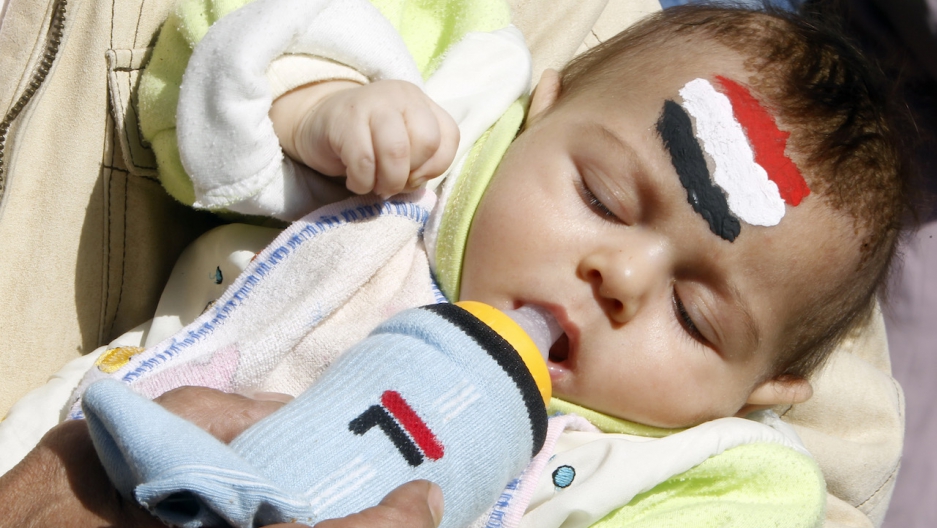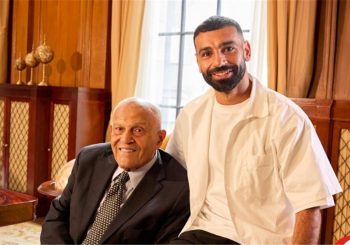Hend Mahmoud, 32, a web developer living in Egypt, spoke with Egyptian Streets about a decision that, in her mother’s generation, would have been unthinkable.
“Many women my age have either chosen to postpone or completely give up the idea of having children,” she said, “even though we were raised with the idea that having a child is every woman’s dream.”
Egypt has long grappled with its fast-growing population, putting pressure on infrastructure, education, and employment. However, in the first quarter of 2025, Egypt’s population grew at a record-low rate of 1.34 percent, according to an April report by Egypt’s Central Agency for Public Mobilization and Statistics (CAPMAS). Yet, the population has reached 107 million overall.
As of early 2024, children under 18 make up 39.5 million, marking 37.3 percent of the population, a slight decline from 37.7 percent in 2023, according to CAPMAS.
Additionally, the birth rate fell to 19.4 per 1,000 people in 2023, down from 21.1 the year before. Fertility rates have also dropped sharply, from 3.5 children per woman in 2014 to 2.41 in 2024, according to government data.
The numbers reflect a quiet but profound shift taking place in Egyptian society, one where economic pressures, rising education levels, and changing gender expectations are reshaping the meaning of family.
“Women are increasingly aware of the responsibility that comes with raising a child,” Mahmoud said, noting that this is why they opt to have fewer children or not have any at all.
For years, the government has urged families to have fewer children, launching family-planning campaigns that warned of the costs of overpopulation. But the change unfolding now seems to be less driven by policy and more by necessity and personal choice.
“Raising a child isn’t just about loving them,” Yasser Ibrahim, 34, a software engineer, told Egyptian Streets. “It’s also about time, money, and emotional stability. I don’t think it’s fair to bring someone into the world when I’m not sure I can give them everything they deserve.”
Mahmoud agreed with Ibrahim’s perspective. She does not want to have children and not be able to give them the best upbringing, healthcare, and education, which, according to her, does not come cheap.
That financial calculus is compounded by shifting aspirations. She continued, “Focusing on my career, my health, and my passions is what makes me feel fulfilled, much like having children, as my mother told me, once fulfilled her.”
Ibrahim also admitted that his choice often invites judgment.
“People think it’s strange, or sad,” he revealed. “My family and friends tell me, ‘You’ll change your mind one day,’ but I know myself. I want to build a meaningful life with my wife, and it doesn’t have to include kids.”
Rahma Abdallah, 31, a chef, grew up believing that marriage and children were inevitable. After all, it is “sunnet el hayah,” meaning the way of life, as most Arabs would say. Yet her perspective has changed over time.
“I think that women are realizing their wants and needs, and becoming more courageous not to be part of the system that necessitates having children.”
The older she becomes, the more she learns and meets people who, like her, do not want to follow in their mothers’ steps. She said, “I think my decision is more logical and less instinctual, taking into consideration whether I can actually take care of a child, emotionally, physically, and financially.”
While many urban women now have the freedom to make those choices, Abdallah added, others, particularly in rural areas, remain constrained by tradition and lack of awareness of the implication of population growth and raising children.
“In Upper Egypt and places where there is a high illiteracy rate, women do not know any better, and family expectations often force them into organized marriages,” Abdallah said. “They don’t really have a choice.”
Mahmoud echoed Abdallah’s views, stating that education and awareness are major factors behind women’s and men’s family planning attitudes.
While campaigns promoting family planning have gained ground, Egyptians remain deeply family-oriented, with many still viewing marriage and children as central to a fulfilling life.
“People ask my husband and me when we’ll have children far more often than I ever see media coverage about family planning,” Abdallah said. “It shows how strongly our culture still favors having children.”
Ibrahim, on the other hand, rarely gets asked about having children. “People just assume it’s women who are rethinking parenthood, but a lot of men are, too. We’re just less vocal about it.”
Though he was raised in a large, loving family and remains grateful for all his parents gave him and his siblings, he is also mindful of the constant worry and sacrifice it required.
“I don’t want to spend my life chasing stability while trying to raise another human being at the same time,” he shared. “The definition of family is changing. Family could be your partner, friends, or even work, and that’s okay.”
According to the Economic Research Forum, the demographic shift could ease pressure on Egypt’s strained resources. With fewer children to educate, feed, and clothe, there would be more resources, healthcare, and opportunities. Women could also have a higher chance to participate in the workforce instead of being stay-at-home mothers.
“If fewer children mean a better life for those who are born, and for the women who choose when or whether to have them, then that’s what this country needs,” Abdallah said.







Comments (0)